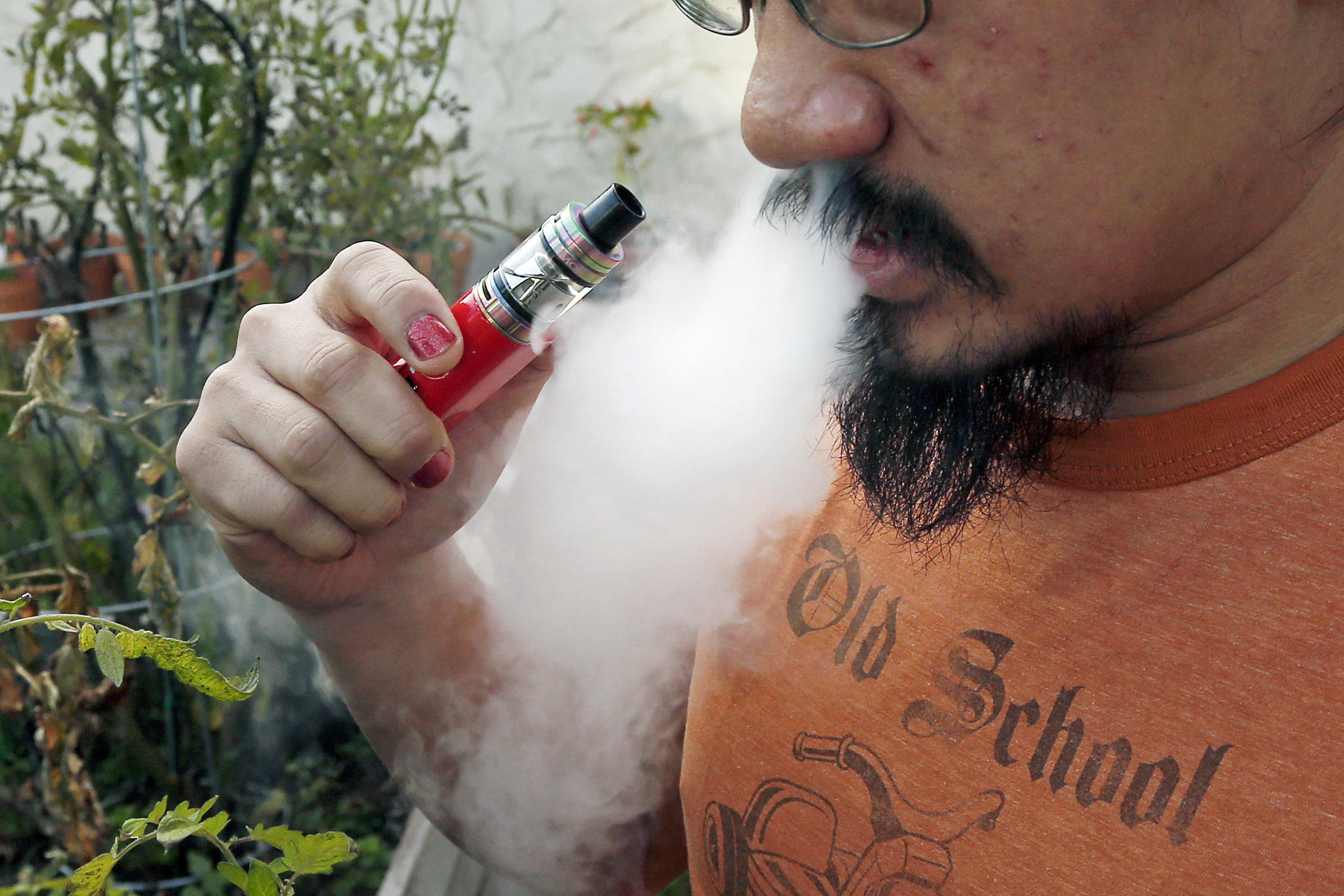
Are vapers at high risk of COVID-19?
People who use vapes or e-cigarettes -- no matter what's in them -- may be more likely to get the coronavirus for many of the same reasons as smokers, such as having lower immunity and touching their faces more. Research also suggests that the aerosols from e-cigarettes irritate and hurt lung cells.
Can COVID-19 be spread through sex?
The virus spreads by respiratory droplets released when someone with the virus coughs, sneezes or talks. These droplets can be inhaled or land in the mouth or nose of a person nearby. Coming into contact with a person's spit through kissing or other sexual activities could expose you to the virus.
Are smokers more likely to develop severe disease with COVID-19?
Tobacco smoking is a known risk factor for many respiratory infections and increases the severity of respiratory diseases. A review of studies by public health experts convened by WHO on 29 April 2020 found that smokers are more likely to develop severe disease with COVID-19, compared to non-smokers.
Can a COVID-19 infection damage your lungs?
In critical COVID-19 -- about 5% of total cases -- the infection can damage the walls and linings of the air sacs in your lungs. As your body tries to fight it, your lungs become more inflamed and fill with fluid. This can make it harder for them to swap oxygen and carbon dioxide.
Can you get COVID-19 from kissing someone?
It's well known that the coronavirus infects the body's airways and other parts of the body, but new research indicates that the virus also infects mouth cells. You don't want to kiss someone who's got COVID.
How long can someone with COVID-19 be contagious?
"A person with COVID-19 is considered infectious starting two days before they develop symptoms, or two days before the date of their positive test if they do not have symptoms," according to the CDC. Regardless of symptoms, those who test positive are advised to take specific precautions for at least 10 days.
Which groups of people are at increased risks of severe illness from COVID-19?
Among adults, the risk for severe illness from COVID-19 increases with age, with older adults at highest risk. Severe illness means that the person with COVID-19 may require hospitalization, intensive care, or a ventilator to help them breathe, or they may even die. People of any age with certain underlying medical conditions are also at increased risk for severe illness from SARS-CoV-2 infection.
Who are at higher risk of developing serious illness from COVID-19?
Older people, and those with underlying medical problems like cardiovascular disease, diabetes, chronic respiratory disease, and cancer are more likely to develop serious illness.
Who is most at risk for the coronavirus disease?
Older adults are at highest risk of getting very sick from COVID-19. More than 81% of COVID-19 deaths occur in people over age 65. The number of deaths among people over age 65 is 97 times higher than the number of deaths among people ages 18-29 years.
What are some potential lingering symptoms after COVID-19?
For people who have had COVID-19, lingering COVID-19 heart problems can complicate their recovery. Some of the symptoms common in coronavirus “long-haulers,” such as palpitations, dizziness, chest pain and shortness of breath, may be due to heart problems — or, just from having been ill with COVID-19.
Are long term side effects possible with the COVID-19 vaccine?
Benefits of Vaccination Outweigh the Risks Serious side effects that could cause a long-term health problem are extremely unusual following any vaccination, including COVID-19 vaccination.
Do mild cases of COVID-19 cause scars on the lungs?
“The first is the severity of the coronavirus infection itself — whether the person has a mild case, or a severe one,” Galiatsatos says. Milder cases are less likely to cause lasting scars in the lung tissue.